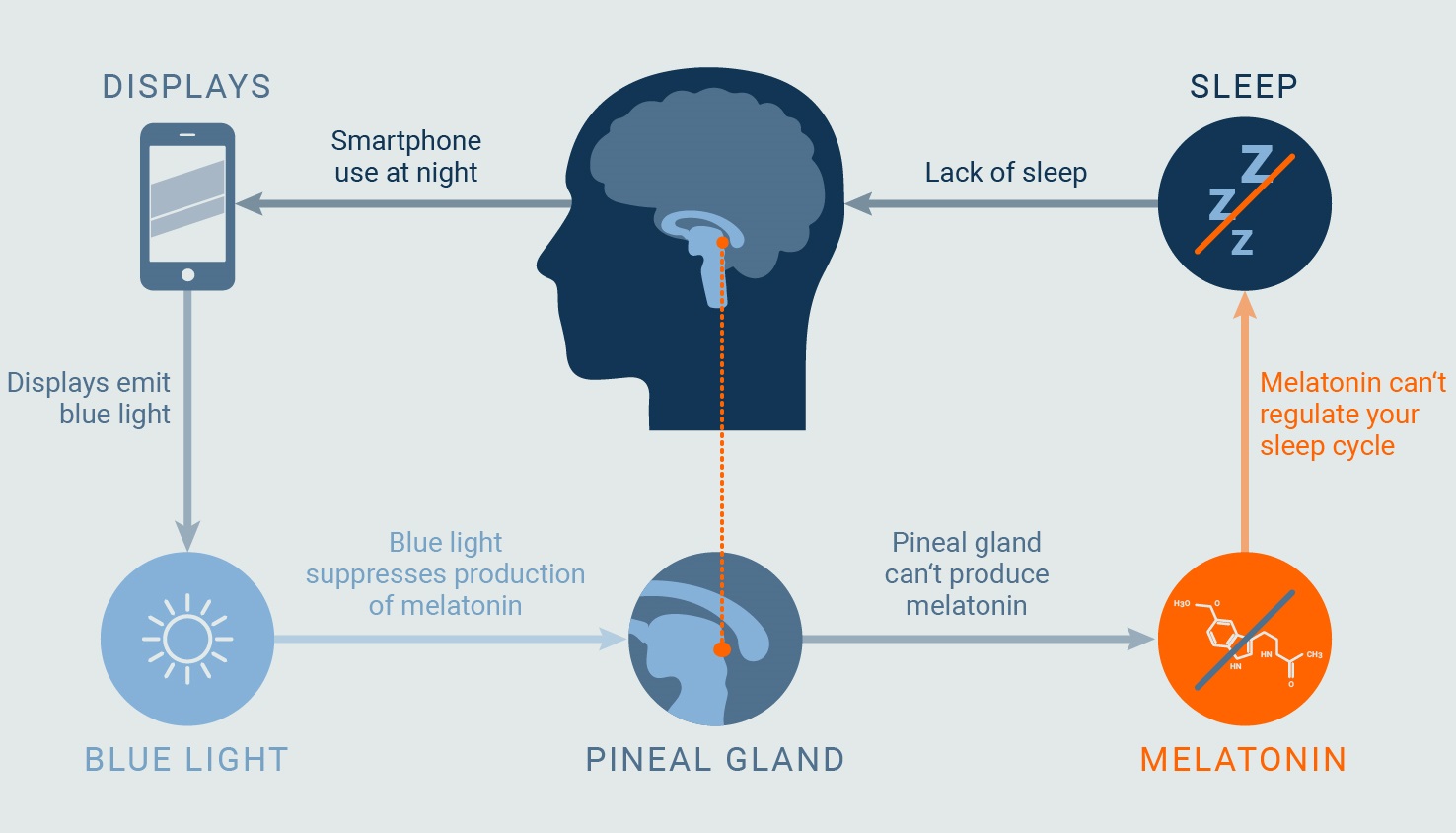We all lose sleep from time to time. In fact, a third of the population loses sleep before the beginning of the work week due to the “Sunday Scaries.”
If you are still tired after 8 hours of sleep, you may have racked up a large sleep debt earlier in the week without even realizing it.
Sleep debt, or a sleep deficit, refers to the amount of sleep someone actually gets in comparison to the amount of sleep they need.
It’s cumulative, so going to bed even an hour later than usual for several days quickly racks up a large deficit.
However, you might not necessarily feel tired at first (or at all) after accumulating sleep debt.
Research has revealed that humans adapt to a lack of sleep. Therefore, even if you don’t feel tired, a decline in cognitive and physical ability may have already occurred.
Whether or not you are still tired after 8 hours of sleep, you may have sleep debt you need to pay off. The dangers of building up sleep debt are nothing to scoff at - especially when it comes to your immune system.
Weakened Immunity
Sleep is an essential tool for clearing inflammation from the body, and keeping illness at bay. When we’re sleep-deprived, inflammation is given an opportunity to build.
Our ability to self-regulate by sweeping inflammation is then hindered.
People who sleep less each night on average experience a higher risk of infections when compared to people who get adequate rest.

As we run short on sleep, antibody levels run short, too.
Moreover, not only are people with sleep debt at risk for getting sick, but once they fall ill with the cold or the flu, their recovery is further sabotaged by a lack of sleep.
Fevers are essential for fighting off illness and infection. Fevers tend to rise at night, fending off attacks on the body. However, if we’re not sleeping enough, our fever reaction dwindles, prolonging illness.
Over time, elevated inflammation levels attributed to sleep debt may cause more than just the average pesky cold or flu.
Long-term inflammation is associated with multiple long-term health problems like diabetes. But the dangers don’t stop there.
Sleep debt is known to wreak havoc on our cognitive processing abilities.
Processing Issues and Brain Fog
If you’re still tired after 8 hours of sleep, sleep debt from earlier in the week is likely disrupting your ability to process information properly.
Sleep helps to restore the body and mind, allowing us to process our past and prepare for the future.
While we rest, our brains sort through our experiences from the day while filtering what we need to store for later and what should be eliminated. This helps make room for new information while filing away helpful information for tomorrow.
Sleep debt can hinder our ability to learn and process information by as much as 40 percent.
A lack of adequate sleep affects the hippocampus, a part of the brain that plays a key role in helping us form new memories and convert short-term memories into long-term memories.
Sleep debt impairs the plasticity of the hippocampus, disrupting its ability to send signals to the rest of the brain and help file away important information.
Sleep debt not only disrupts the hippocampus, but the messaging system of the entire brain. Temporary mental lapses and processing challenges arise as a result.
Brain fog in the morning follows, leading to lowered reaction times and a general feeling of being “out of it.”
This phenomenon helps explain why sleep-deprived drivers are at a greater risk of causing accidents when compared to those who are well-rested.
If that wasn’t already scary enough, sleep debt is known for increasing our risk of cardiovascular problems and obesity.
Cardiovascular Problems and Obesity
Chronic sleep debt is linked to a myriad of cardiovascular issues.
Adequate sleep helps to bring our blood pressure down. Sleep debt means that our blood pressure remains elevated for long periods of time, putting stress on the cardiovascular system.
People with sleep debt are at greater risk of developing high blood pressure, heart disease, heart failure, or an irregular heart rate.
With these increased risks, they are also more likely of having a stroke or heart attack when compared to those without a high sleep debt.
There are also repeatedly found links between sleep deprivation and obesity.
Many theorize that people are less active then they are running short on sleep for the week.
For example, if you’re still tired after 8 hours of sleep but you only got an average of 4 hours of sleep the night prior, you may be more lethargic, moving less than if you were well-rested.
Moreover, running short on sleep may lead to poor food choices in combination with metabolic and hormonal changes known to promote obesity.
The dangers linked to sleep debt are more than enough motivation to encourage healthy sleep patterns, but it isn’t always that simple.
Understanding common causes of sleep debt is the first step in paying it off.
Common Causes of Sleep Debt
Sometimes, sleep is just challenging. Correcting poor sleep patterns and paying off sleep debt relies on first understanding common causes for it in the first place.
Shift work is among the most common reasons many people begin racking up sleep debt. A varying work schedule or working long shifts and overnight shifts throws off our circadian rhythm, or sleep-wake cycle.
As our bodies begin to confuse night and day, natural sleep-wake cues become confused.
What’s more, long hours and commutes are known for interrupting sleep. The amount of time we spend traveling to and from our jobs has increased by 27 percent in the past few decades.
This increased commute time often cuts into our sleep, with many giving up early morning rest for an earlier start to the day.
Digital distractions worsen this issue, as television, social media, and electronics keep us from getting the proper amount of rest each night.
Moreover, the blue light emitted from these devices further confuses our circadian patterns and prolongs the release of melatonin, a sleep hormone that helps us drift off.
To make matters worse, larger sleep deficits lead to sleep disorders that, in turn, make it even harder to sleep. It’s a vicious cycle.
Conditions like insomnia, sleep apnea, and restless leg syndrome are infamous for preventing shut-eye at night.
So how can we even begin to pay off sleep debt?
Paying off Sleep Debt
Like any debt, sleep debt is easy to acquire and tough to pay down. That said, addressing and correcting habits that cut into your sleep may be easier than you think.
Shift workers, for example, should opt to sleep with blackout curtains or sleep masks if overnight shifts are a part of their routine.
Block out blue light from electronic devices by avoiding them within a few hours before bed or by opting to wear blue light glasses that block out blue light that the body confuses for sunlight in the evening.
Naps are yet another great way to pay off chronic sleep debt, but don’t overdo it. A brief 10 to 20-minute snooze is proven to help you feel refreshed during the day (and may even help boost memory, learning, and mental clarity afterward).
Although it’s tempting, sleeping in on the weekends may not serve as an adequate approach to paying down sleep debt, as it further disrupts our normal sleep patterns.
Moreover, one study found that sleeping in over the weekend doesn’t reverse the dysregulation associated with sleep debt build-up.

Although extra rest may help you feel a bit better upon waking, oversleeping on the weekend offers a false sense of recovery.
Consistency is key. Research indicates that it can take up to 4 days to recover from just one hour of lost sleep and 9 days or longer to eliminate sleep debt altogether.
Building consistent habits and keeping a regular sleep and wake schedule that offers an adequate amount of rest ensures that you’ll pay off sleep debt over time.
Avoid building it back up by addressing sleep-disordered breathing that causes snoring and sleep fragmentation.
Keep Sleep Debt Down With SomniFix
If you snore at night, you may not even know it. Even worse, it can disrupt the quality of your sleep, leading to sleep debt, irritability, and daytime fatigue.
Snoring likely keeps your sleeping partner awake, too, causing sleep debt for both of you.
Believe it or not, dysfunctional breathing during sleep causes poor oxygenation, causing snoring, gasping, choking, and poor sleep quality.
Mouth breathing causes airway tissues to fall backward and vibrate together, resulting in the sound of snoring. Mouth breathing disrupts our sleep and leads to sleep debt, while nasal breathing ensures effective oxygenation that warms and filters the air we breathe.
@somnifix The nose is our first line of defense against pollutants, viruses, and bacteria! #JamesNestor author of “Breath” explains the benefits of #nasalbreathing over #mouthbreathing 👃✨ #airwayhealth #sleepquality #wellness #learnontiktok ♬ Pretty Girls Walk - Big Boss Vette
What’s more, nasal breathing protects us from dry mouth and cavities overnight. When we mouth breathe, saliva evaporates, which typically acts as a protective barrier for the teeth against bacteria and plaque.
Nasal breathing ensures a proper lip seal that not only keeps saliva intact as you sleep, it renders open-mouth snoring impossible.
There’s just one problem…how do you make sure you’re nasal breathing if you aren’t awake? Mouth tape!
While it may sound silly at first, mouth tape provides a gentle, effective lip seal proven to prevent mouth breathing and block out snoring as you rest.

As a result, you’ll be able to pay sleep debt down and keep it down thanks to the proper oxygenation and quality sleep achieved through nasal breathing.
However, most tapes are made with irritants within the adhesive known to cause rashes. SomniFix, on the other hand, was created with sensitive skin in mind.
Our strips include a hypoallergenic seal made with a gel-like adhesive free from irritants like latex and gluten.
SomniFix strips even feature a patented central breathing vent, so an emergency mouth breathing option is available if you experience the onset of overnight nasal congestion.
Tape your sleep debt down with SomniFix!







